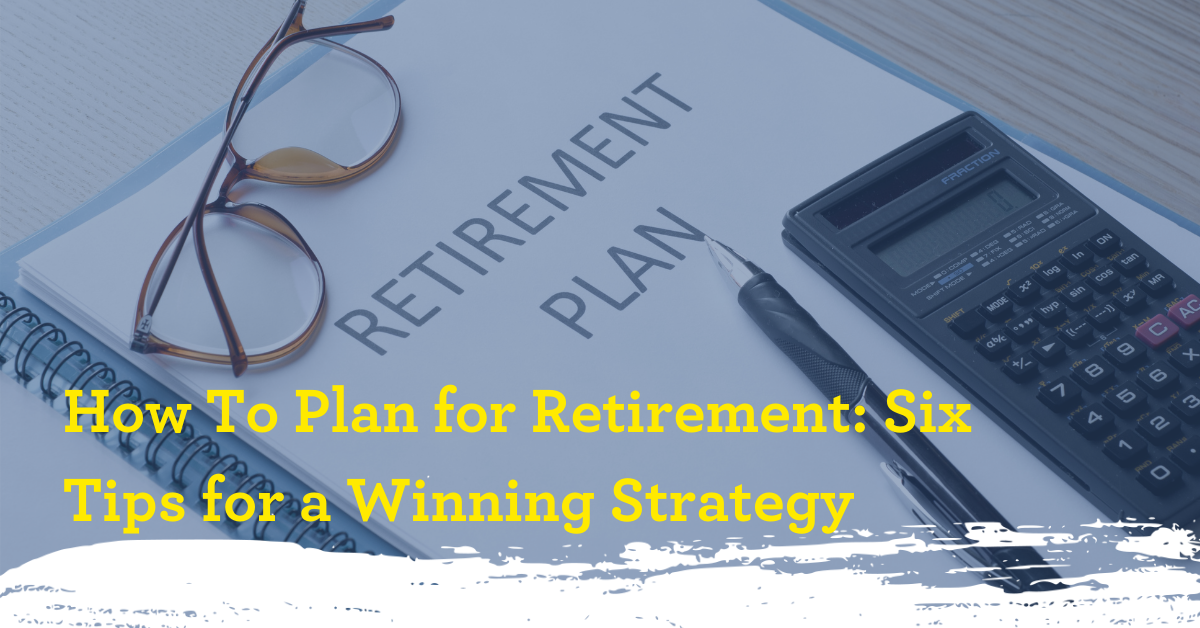Retirement planning is something most people don’t spend much time thinking about until it becomes more imminent, toward the tail end of a career. Unfortunately, when you reach that point, if you haven’t already put a plan in place you’ve missed out on some of your best opportunities for a winning retirement strategy. My advice? Start as early as you can. And if you do find yourself playing catch-up, don’t worry; these six tips can help you get your plan on track.
Pay Yourself First
You should be trying to find ways to add to your savings. A good approach for this is to pay yourself first, which means treating your savings like a bill. Determine ahead of time what you will budget each month to put into your savings, 401(k), IRA or other accounts you might use. With that in mind, treat your savings like a fixed expense, just like your mortgage or utilities. Make sure your retirement strategy is prioritized over more discretionary expenses, like going out to eat or subscribing to a streaming service.
Let’s Make a Match
Having a regular 401(k) deduction from your paycheck is one of the easiest vehicles you can utilize in your retirement strategy. But you might be leaving money on the table without realizing it. If your employer offers a 401(k) match, that’s free money that can make a profound impact on your retirement.
Because of the power of compound interest, even a small contribution makes a difference. And if that money can be matched by your employer, your account will grow by leaps and bounds over time. Early in your career, with other expenses feeling more pressing, retirement may feel too far off for you to give it serious consideration. But if you can put just a small percentage of your paycheck into a retirement account in your 20s and 30s and also take advantage of an employer match, that money will add up over time and be worth a lot more than if you wait to start funding your retirement until your 50s.
Leverage Your Health
Life insurance isn’t often associated with retirement planning, but that’s a critical mistake. Any retirement strategy that lacks the benefit of a life insurance policy is liable to collapse in the wake of a single devastating event. If you are the sole or primary breadwinner, what happens to your loved ones if you don’t make it home one day? Who will pay the mortgage? How will your children afford college? What will happen to your partner’s retirement strategy? Without the protection provided by a life insurance policy, the immediate and major expenses your loved ones will face when you are gone will drain any retirement savings fast.
But just like with a 401(k), if you wait too long to purchase a life insurance policy, you’re assuming a lot of unnecessary risk. Not only do you run the risk of an accident, but you are certain to miss the lowest possible premiums. There’s a well-known saying in the insurance industry: money pays for life insurance, but your health buys it. If you buy life insurance when you’re young and healthy, you can take advantage of the best rates possible and provide a blanket of financial security for your loved ones.
Plan for Your Care
The average American lifespan is increasing, which drives a lot of Americans to think they can defer decisions about their retirement until later in life. However, a longer life and a healthy life are not the same thing. Experts estimate that more than 50% of Americans will need some type of care assistance during their retirement years. Failing to include long-term care insurance in your retirement strategy leaves you unprotected in the likely scenario that you wind up needing assistance in your retirement.
Just like with life insurance, the longer you wait the more expensive long-term care premiums will be. I recommend buying long-term care insurance in your early 40s, while you’re healthy and in your prime earning years. There are a lot of options for this type of insurance, so I highly recommend talking to a financial professional to get a sense of your options and to find the best fit for your needs.
An Account To Count On
Annuity policies supply impressive benefits and deserve to be considered in any well-rounded retirement strategy. Annuities are designed to provide a steady stream of income in retirement, and that income stream won’t change regardless of market fluctuations or the current interest rate environment. Many annuities offer features and benefits that allow for living benefits as well as loans and liquidity features.
Don’t Go It Alone
I may not have an unbiased opinion on this point, but I can personally attest to the value of working with a financial professional in designing your retirement strategy. Your money and your retirement should be incredibly important to you, and it’s hard to be objective about such personally significant decisions.
In my career, I followed my dad’s example. He worked in the insurance industry up until his retirement, but he did not practice in his own life what he preached to his clients. Now, my mom is still working because my dad never invested the proper time and energy into his own financial planning. After seeing my parents’ struggles with their retirement strategy (or lack thereof), I decided to work with a financial planner for my own planning.
An objective third-party partner can help you gain an impartial perspective that also comes with the benefit of knowing the best financial vehicles for your retirement strategies. There is an up-front cost of working with a financial professional, it’s true. But just like with compound interest, the peace of mind and sound financial strategy you gain through that relationship will dwarf that costs in the long run.

